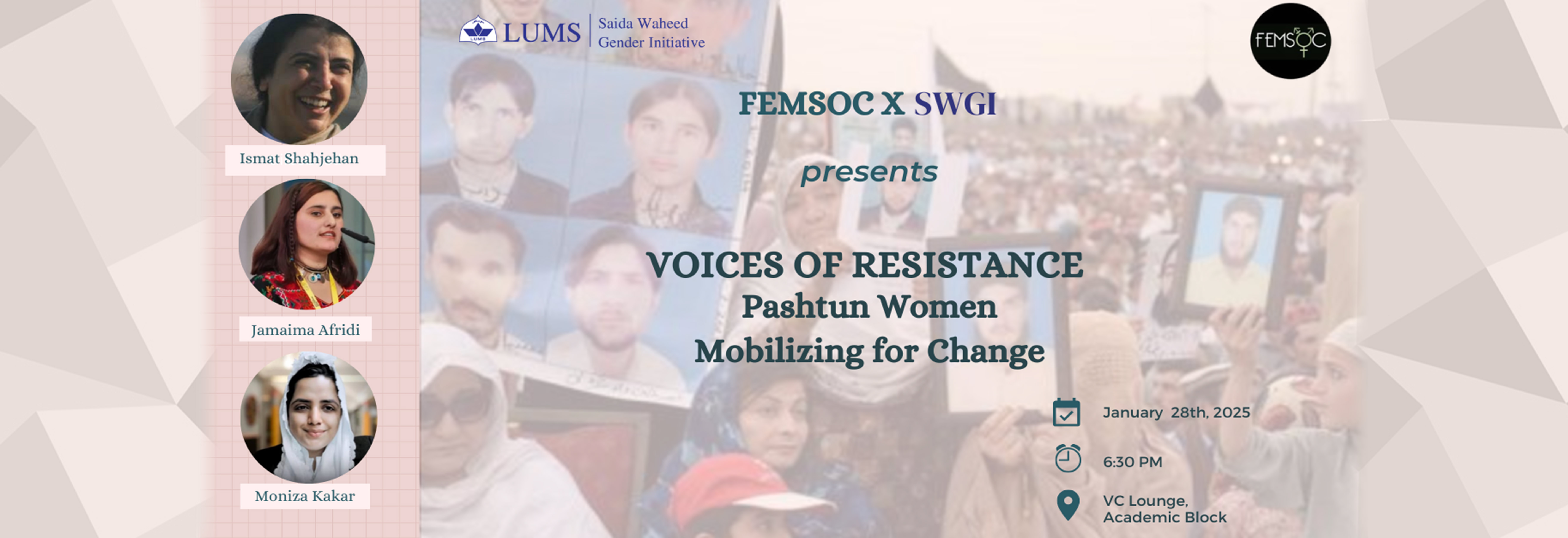On January 28, 2025, FEMSOC X SWGI hosted an impactful discussion at LUMS, titled "Voices of Resistance: Pashtun Women Mobilizing for Change." The event brought together three distinguished activists—Ismat Shahjehan, Jamaima Afridi, and Moniza Kakar—who explored the critical role of Pashtun women in political movements and grassroots activism.
The conversation opened with a historical overview of the Pashtun Tahafuz Movement (PTM) and the systemic challenges faced by Pashtun communities. Moniza Kakar, a prominent human rights lawyer, shed light on the legal and social injustices affecting Pashtun women, particularly in the context of displacement, enforced disappearances, and land rights. She emphasized the ongoing struggle against the militarization of Pashtun lands and the resilience of women who continue to resist despite threats and violence.
Ismat Shahjehan, a veteran activist, delved into the colonial legacy shaping the region’s political landscape. She challenged mainstream narratives that reduce Pashtun identity to tribalism, asserting that Pashtun women have always played a crucial role in political movements. She also critiqued Pakistan’s federal structure, arguing that it has historically marginalized Pashtun voices.
Jamaima Afridi, a journalist committed to amplifying underreported stories, spoke about media censorship and representation. She highlighted the limitations placed on Pashtun women in journalism, recounting her experience covering the Great Jirga of Khyber and the biases she faced as a female reporter. She stressed the importance of owning narratives and ensuring that Pashtun women’s stories are told on their terms.
The discussion transitioned into an engaging Q&A session, where audience members posed thought-provoking questions about feminist activism, national identity, and grassroots mobilization. The panelists addressed concerns about student participation, the intersection of feminism and nationalism, and the broader implications of seeking autonomy within Pakistan’s existing framework.
Through this dialogue, "Voices of Resistance" underscored the need for collective action, informed discourse, and a reimagining of political spaces where Pashtun women are not just included, but leading the charge for change. The event served as a powerful reminder of the strength, resilience, and unwavering spirit of Pashtun women in the fight for justice and representation.

